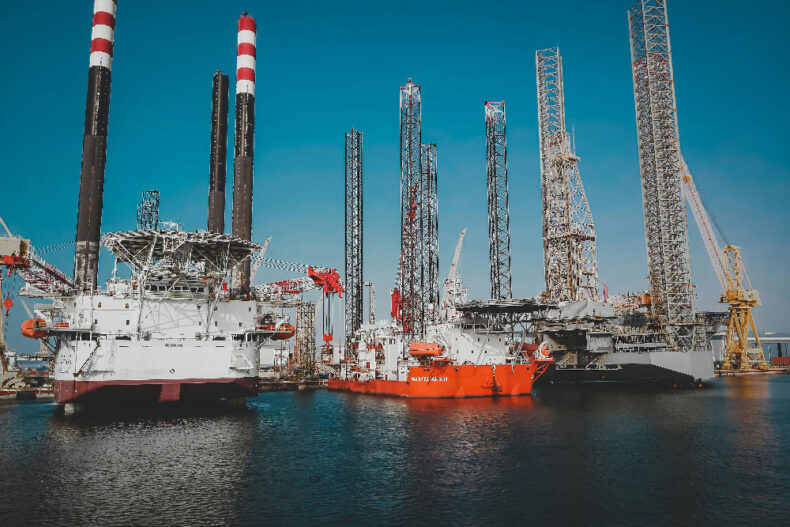Unlocking the Future with Engineering Technology in Nigeria
The oil and gas industry is undergoing a significant digital transformation, driven by the integration of engineering technologies into core operational systems. Among these, digital twins are emerging as a game-changing innovation, especially in the realm of asset management. With leading platforms like AVEVA and Bentley Systems at the forefront, oil and gas companies worldwide are realizing unprecedented operational efficiency, cost savings, and decision-making power. For Nigerian oil and gas firms, adopting this advanced engineering technology could be the key to unlocking new levels of productivity, sustainability, and global competitiveness.
What Are Digital Twins?
A digital twin is a virtual replica of a physical asset, system, or process. It enables real-time monitoring, simulation, and analytics, providing engineers and operators with a dynamic and data-rich environment to assess performance, forecast failures, and optimize operations. In the oil and gas sector, digital twins are used for everything from pipeline monitoring and drilling operations to refinery management and offshore platform maintenance.
Revolutionizing Oil & Gas Asset Management
In asset-intensive industries like oil and gas, managing infrastructure efficiently is critical. Digital twins enhance asset management by enabling:
- Predictive Maintenance: Reducing downtime and preventing costly failures.
- Lifecycle Optimization: Extending asset life through informed decision-making.
- Risk Management: Identifying and mitigating operational risks in real time.
- Remote Monitoring: Minimizing human intervention in hazardous environments.
This transformation is largely powered by advanced software platforms like AVEVA and Bentley Systems.
AVEVA: Empowering Oil & Gas in Nigeria
AVEVA in Nigeria is gaining traction for its robust asset performance and engineering solutions. The AVEVA™ Digital Twin platform integrates data from design, operations, and maintenance into a centralized, actionable view. It enables Nigerian oil and gas firms to manage assets more efficiently while adhering to global best practices in compliance and safety.
Key features include:
- AVEVA Asset Performance Management (APM): Predictive analytics and AI-driven insights to maintain and optimize asset health.
- AVEVA Unified Engineering: Collaborative design tools that ensure engineering data integrity across lifecycle stages.
- Cloud and Edge Integration: Supporting remote oil fields and offshore platforms with seamless data access.
AVEVA’s technology aligns well with Nigeria’s push for digital transformation in the energy sector, enabling local companies to modernize without overhauling existing infrastructure.
Bentley Systems: Infrastructure Intelligence for the Energy Sector
Bentley’s engineering asset management technologies are widely respected for their depth in infrastructure design, simulation, and operational intelligence. Its iTwin® platform enables the creation of performance-driven digital twins that synchronize engineering data, geospatial context, and IoT inputs.
In Nigeria’s oil and gas landscape, Bentley’s tools can support:
- Pipeline Integrity Management
- Structural Health Monitoring of Rigs and Platforms
- Environmental Impact Assessments
- Capital Project Planning and Execution
With Bentley’s solutions, Nigerian firms can manage complex infrastructure more efficiently, drive sustainability goals, and meet local content requirements without compromising on quality or safety.
Why Nigeria Must Adopt Digital Twin Technology
Nigeria, as Africa’s largest oil producer, stands to gain significantly from investing in digital twin and engineering asset management technologies. Benefits include:
- Operational Efficiency: Reducing costs in a high-risk, high-reward industry.
- Talent Development: Upskilling engineers and technicians in digital competencies.
- Regulatory Compliance: Leveraging real-time data to meet national and international safety standards.
- Sustainability and ESG Goals: Tracking and optimizing energy usage and emissions.
In addition, these tools can bolster Nigeria’s national energy infrastructure, aid in pipeline monitoring to reduce losses, and support asset recovery initiatives in remote or degraded installations.
Conclusion
Digital twins are not just a passing trend, they are the future of oil and gas asset management. Platforms like AVEVA and Bentley offer powerful, scalable solutions tailored for the complexities of the energy sector. For Nigerian industries, embracing these engineering technologies means stepping into a new era of smart asset management, operational excellence, and digital innovation.
Now is the time for stakeholders in Nigeria’s oil and gas industry to invest in digital twin capabilities, partner with technology leaders, and build the digital infrastructure needed for long term success.





